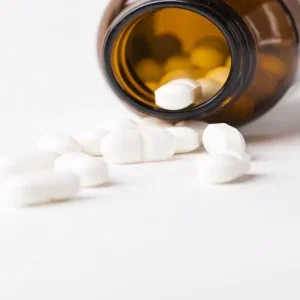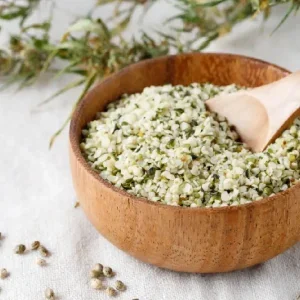
Cardiovascular Health Market
Cardiovascular Disease (CVD) is a general term that includes many different conditions affecting the heart and blood vessels. It affects people of all ages, races and backgrounds. According to a survey conducted by the WHO, in 2012, approximately 17.5 million people died from various cardiovascular disease. Every year, disorders of the heart and blood vessels take the lives of 17.7 million people, accounting for a staggering 31% of all global deaths.
To help keep their hearts ticking over, consumers are turning to functional foods and beverages, vitamins and dietary supplements as part of a health-focused diet and lifestyle. As a result, the global heart health market is flourishing, with US sales alone was worth $7 billion in 2014. And as consumers are gaining awareness regarding cardiovascular health, the requirement for heart health supplements keeps increasing.
Ingredients for Cardiovascular Wellness
Cardiovascular disease can be prevented by eating a healthy diet, getting regular exercise and cutting out cigarettes and excessive alcohol consumption. Proper dietary supplementation is another way to reduce the risk of cardiovascular disease. Below are some ingredients that can be used to prevent cardiovascular disease.
1. Coenzyme Q10
Coenzyme Q10 is beneficial for heart health in many ways. It assists in maintaining the normal oxidative state of LDL cholesterol, helps assure circulatory health, and supports optimal functioning of the heart muscle. CoQ10 may also help support the health of vessel walls.
2. Algae Oil DHA
Algae oil helps regulate heartbeat, reduce blood pressure, decrease blood clot formation and reduce overall inflammation. This decreases the risk of heart attacks and strokes. Algae oil also helps reduce triglycerides and LDL cholesterol. DHA can improve cardiovascular health by helping to lower dangerous LDL cholesterol while increasing healthy HDL cholesterol levels. According to a report by "Science Daily," people with heart disease are typically advised by physicians to take at least 4,000 mg of DHA and EPA each day.
3. Oat Beta-D-Glucan
Found mainly in the endosperm cell wall of oats, β-glucan is thought to reduce total serum and low-density lipoprotein cholesterol by forming a viscous mass in the small intestine thus limiting intestinal absorption of dietary cholesterol as well as the re-absorption of bile acids. Studies concluded that a dose of 3g/day oat β-glucan consumed as part of a diet "free of saturated fatty acids" or "low in saturated fatty acids" could help to promote cardiovascular health.
4. Vitamin E
Vitamin E is a powerful antioxidant in the body's lipid (fat) phase. It can prevent LDL lipid peroxidation caused by free radical reactions. Its ability to protect cell membranes from oxidation is of crucial importance in preventing and reversing many degenerative diseases. In addition, vitamin E inhibits blood clotting (platelet aggregation and adhesion) and prevents plaque enlargement and rupture. Finally, it has anti-inflammatory properties, which may also prove to be very important in the prevention of heart disease.
5. Gamma Oryzanol
One of the most important properties of γ-oryzanol is its cholesterol lowering property. There are several studies on humans and animals showing that the rice bran oil (RBO) has the property of lowering low density lipoprotein cholesterol and total serum cholesterol and increasing the high density lipoprotein cholesterol to some extent either by influencing absorption of dietary cholesterol or by enhancing the conversion of cholesterol to fecal bile acids and sterols. Further studies confirm that the γ-oryzanol component of RBO is responsible for the hypocholesterolemia and oryzanol significantly helps in lowering down bad cholesterol and increasing good cholesterol at the same time.
6. Lutein
Lutein can help prevent oxidative stress to cholesterol and the cardiovascular system and prevent clogged arteries and carotid artery thickness. Lab tests and animal research also concluded that dietary lutein may help prevent atherosclerosis. A major human study of atherosclerosis showed that lutein and other carotenoids may help prevent heart attack and stroke.
7. Astaxanthin
There is a growing body of scientific evidence supporting the benefits of astaxanthin for heart health, including reduced oxidative stress and inflammation, improved lipid profiles, and better blood flow. Antioxidants like astaxanthin help to counteract the damaging effects of reactive oxygen species (ROS), or free radicals, promoting a healthy oxidative balance. It is safe, natural and can be sustainably produced. When there’s more astaxanthin around, HDL cholesterol (the “good” kind) production goes up and LDL cholesterol (the “bad” kind) is protected from free-radical damage.
8. Grape Seed Extract
Numerous studies have been conducted to evaluate the potential benefits of grape seed extract on cardiovascular health, both in animals and in humans, and the results have been promising. Grape seed extract has been shown, for example, to reduce the scale of a heart attack, control tachycardia (an abnormally fast resting heart rate), provide protection against cardiotoxicity caused by the drug doxorubicin, reduce biomarkers of early stage atherosclerosis, and reduce oxidised LDL cholesterol levels.
9. Ginkgo Biloba Extract
Ginkgo biloba benefits the overall heart health by lowering the blood pressure and helping eradicate the formation of blood clots all over the entire cardiovascular or circulatory system. The circulation is stimulated as the blood vessels dilate, thus taking off added strain from the heart and efficiently oxygenating the body. The chances too of acquiring a heart attack or stroke in the brain will be lessened since blockages and blood clotting can now be addressed by gingko as a natural anticoagulant. It also reduces the fragility of the smallest blood vessels, the capillaries.
10. Resveratrol
Resveratrol possesses potent antioxidant properties and has been shown to decrease low-density lipoprotein-cholesterol oxidation and platelet aggregation. This compound also possesses a range of additional cardioprotective and vasoprotective properties including antiatherosclerotic and vasorelaxation action. Resveratrol also has the capacity to interact with multiple molecular targets, which involve diverse intracellular pathways. Overall observation indicates that resveratrol has a high therapeutic potentials for the treatment of cardiovascular diseases.
11. Vitamin D
A growing body of evidence suggests that consumers who are deficient in vitamin D are at increased risk of heart disease. Vitamin D deficiency is also linked to other, well-known heart disease risk factors such as high blood pressure, obesity and diabetes. Although this vital nutrient is produced by the skin when exposed to direct sunlight, the lack of consistent year-round sunshine in some countries makes dietary sources and supplementation vital.
12. Soybean Isoflavones
Soybean isoflavone is natural antioxidants that can increase the antioxidant properties of low-density lipoproteins in serum and inhibit the formation of atherosclerotic plaques in blood vessels, thus preventing atherosclerosis. At the same time, it can help expand vascular elasticity, increase vascular compliance, and keep the arteries of the heart unimpeded.
13. Niacin
Niacin helps with cholesterol management in your body, which then minimises the risk of getting a heart disease. Plus, it curbs inflammation and oxidative stress that can prove to be dangerous for the cardiovascular health as they work to harden the arteries and block blood flow. Vitamin B3 is known to expand the blood vessels, thus improving the blood circulation and enhancing the overall functionality of the cardiovascular system.
Cardiovascular health is one of the six functions that Kangcare Bioindustry focuses on. The ingredients in Kangcare’s portfolio is highly versatile and can be integrated into a number of food and beverage applications, as well as dietary supplements.






